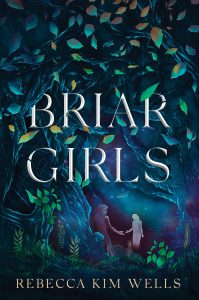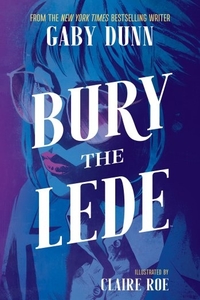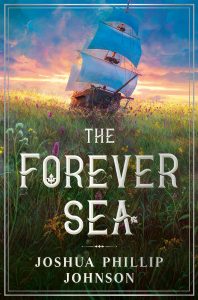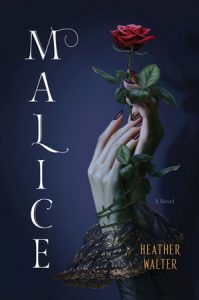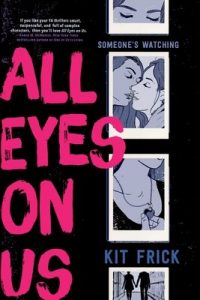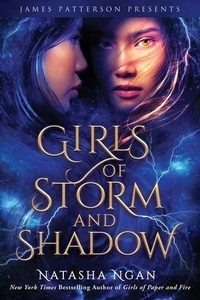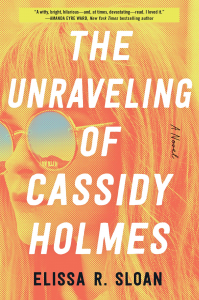Amazon Affiliate Link | Bookshop.org Affiliate Link
This is a YA fantasy book about Lena, a girl who kills everyone she touches. Her parents have been keeping her hidden, moving around a lot whenever things get dicey–Until one day, her mother leaves and never comes back. The witch who cursed Lena is still looking for her, so her father has strict rules to keep her safe. It’s not much of a life. She has no friends and rarely leaves their house.
In their latest move, her father is hired to be the Watcher of a forest called the Silence. People keep getting pulled in by the woods, and if they return, they’re changed, endlessly singing the same song. Her father’s job is to keep people out of the Silence, but when Lena sneaks away one night to take a peek, she finds someone running out of the woods instead.
Miranda is injured and being chased, so Lena and her father take her in. But Miranda is from Gather, a magical city, and she promises that a cure to Lena’s curse could be found there. Miranda will take her there, if Lena agrees to help her find and awake the sleeping princess who is prophesied to bring down their tyrannical government. Lena agrees, escaping her father’s house despite his protestations, and she’s pulled into a world that’s beyond anything she imagined.
Before Miranda, Lena didn’t know magic existed, apart from her curse. Now, she sees apparitions in the woods that try to lead her astray. She stumbles into a complex network of magical allegiances and enemies, Never sure who to trust. Everyone she meets seems to tell her that the other person is a liar and a traitor.
Lena also finds a new understanding of her curse. In this world of blood magic, with enemies chasing her and her life on the line, Killing people with a touch can have its advantages, And Lena begins to grapple with her own power, especially when she’s promised much, much more.
There’s also a romance subplot here, and a classic bisexual love triangle. At first, Lena felt like a helpless character being pulled from one situation to the next. Who she trusted felt arbitrary, and often was just the last person she spoke to. But this fit into the fairy tale aspects of the story: being in dark, magical woods, being lost, and not knowing which magical being to trust.
As she gets used to this world, though, we start to see a different side of Lena, one who is angry and wants to wield power. She’s resentful of the life she’s had and of feeling guilty all the time for her curse. So it’s a bit of a revenge story, and a story about righteous anger.
This really pulled me in, and ends on an epic battle that brings all these disparate story elements and characters together. If you like dark fairy tale reimaginings, definitely give this one a try.
I do want to give a content warning for cutting: this world using blood magic, so it comes up a lot.

